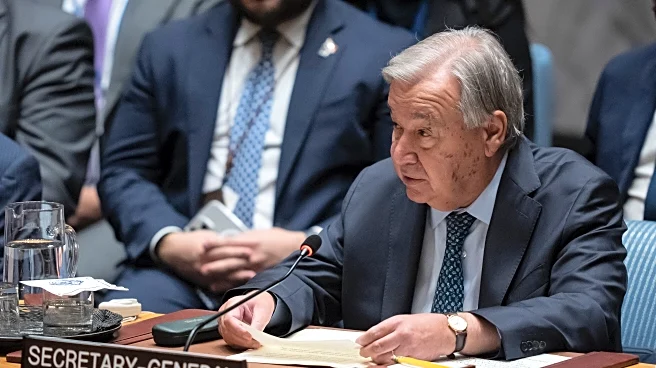UNITED NATIONS (AP) — China, the world’s largest carbon polluting nation, has announced a new climate fighting goal to cut emissions by 7% to 10% by 2035.
It came as more than 100 world leaders lined up
Wednesday to talk of increased urgency and the need for stronger efforts to curb the spewing of heat-trapping gases.
With major international climate negotiations in Brazil 6½ weeks away, the United Nations Secretary-General Antonio Guterres convened a special leaders summit during the General Assembly to focus on climate change.
THIS IS A BREAKING NEWS UPDATE. AP’s earlier story follows below.
UNITED NATIONS (AP) — As Earth keeps heating up and its weather gets more extreme, more than 100 world leaders lined up Wednesday to talk of increased urgency and the need for stronger efforts to curb the spewing of heat-trapping gases.
But few large concrete national plans — especially from major polluters China, Europe and India — were unveiled despite a pressing deadline and sticky Wednesday warmth.
With major international climate negotiations in Brazil 6½ weeks away, the United Nations Secretary-General Antonio Guterres convened a special leaders summit during the General Assembly to focus on climate change. The idea is to get the countries to submit warming-fighting plans that are stronger, incorporate them throughout their economies and have them in line with an international temperature limit goal that is fast slipping away from reality.
“The science demands action. The law commands it. The economics compel it. And people are calling for it,” Guterres said in opening the Wednesday afternoon marathon session with 121 leaders scheduled to speak.
“Warming appears to be accelerating,” climate scientist Johan Rockstrom said in a science briefing that started the summit. “Here we must admit failure. Failure to protect peoples and nations from unmanageable impacts of human-induced climate change.”
“We’re dangerously close to triggering fundamental and irreversible change,” Rockstrom said.
Under the 2015 Paris climate accord, 195 nations are supposed to submit new more stringent five-year plans on how to curb carbon emissions from the burning of coal, oil and natural gas. Technically the deadline was in February and about 50 nations — responsible for one-quarter of the world's carbon emissions — have filed theirs, including Pakistan, Micronesia, Mongolia, Liberia and Vanuatu.
All of those nations submitted on Wednesday. UN officials said countries really need to get their plans in by the end of the month so the U.N. can calculate how much more warming Earth is on track for if nations do what they promise.
Before 2015, the world was on path for 4 degrees Celsius (7.2 degrees Fahrenheit) of warming since pre-industrial times, but now has trimmed that to 2.6 degrees Celsius (4.7 degrees Fahrenheit), Guterres said.
However, the Paris accord set a goal of limiting warming to 1.5 degrees Celsius (2.7 degrees Fahrenheit) since the mid 19th century and the world has already warmed about 1.3 degrees Celsius (2.3 degrees Fahrenheit) since.
Kenyan President William Ruto said Wednesday that climate change was both the single greatest threat and development opportunity facing Africa, with the right action making the difference between survival and devastation.
Without urgent action on climate change the world is “walking blindfolded towards the abyss,” Brazilian President Luiz Inácio Lula da Silva said in a speech that opened the General Assembly on Tuesday.
“Bombs and nuclear weapons will not protect us from the climate crisis,” said Lula, who will host the November climate negotiations in the Amazon city of Belem. He announced the launch of the Tropical Forest Forever Facility (TFFF), a billion dollar program aimed at compensating countries for keeping forests standing.
José Raúl Mulino Quintero, the president of Panama, said that although his country is already one of the few that emits less carbon than it absorbs with its forests, he promised they would reduce their carbon emissions further by 2035.
“We believe one can always take another step for sustainability for future generations,” Quintero said. He said Panama would restore almost 250,000 acres (100,000 hectares) of critical ecosystems including mangroves and watersheds, “because nature is our first line of defense against climate change.”
___
The Associated Press’ climate and environmental coverage receives financial support from multiple private foundations. AP is solely responsible for all content. Find AP’s standards for working with philanthropies, a list of supporters and funded coverage areas at AP.org.











